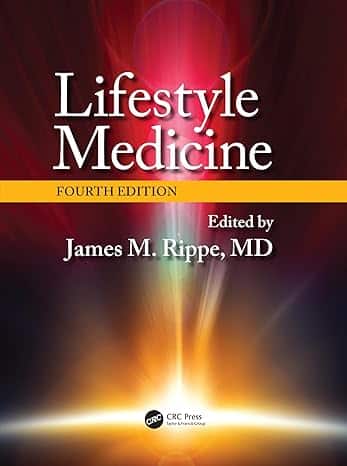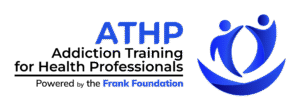The Addiction Training for Health Professionals (ATHP) team was pleased to participate in the development of a chapter in Dr. James M. Rippe’s well-known text, Lifestyle Medicine, Fourth Edition. This chapter, co-authored by ATHP’s CEO Miriam Chickering, alongside Saria El Haddad, Monthe Kofos, Kimberly Evans, Diana Nguyen, Leah A. Kofos and Erica Frank, focuses on the vital role of psychosocial interventions in treating substance use disorders (Link to chapter ).

Why Psychosocial Interventions Matter
Psychosocial interventions are evidence-based approaches that target biological, behavioral, cognitive, emotional, interpersonal, social, and environmental factors to improve health functioning and well-being. These interventions are essential components in the treatment of various drug problems and addictive behaviors.
Some key benefits of psychosocial interventions include:
- Prevention, identification, and treatment of SUDs
- Support for rehabilitation and social reintegration
- Flexibility to be used alone or in conjunction with pharmacotherapy
- Applicability across various stages of treatment and levels of care
Evidence-Based Interventions
Our chapter discusses several proven psychosocial interventions, including:
- Behavioral Couples Therapy (BCT)
- Family Therapy
- Cognitive Behavioral Therapy (CBT)
- Dialectical Behavioral Therapy (DBT)
- Community Reinforcement Approach (CRA)
- Contingency Management (CM)
- Individual Drug Counseling (IDC)
- Motivational Interviewing (MI)
- Brief Interventions (BIs)
- 12-Step Facilitation (TSF)
- Peer Support
Each of these interventions offers unique benefits and can be tailored to meet individual patient needs.

Integration into Comprehensive Treatment Plans
Psychosocial interventions can be integrated into treatment plans at every level of care, from outpatient services to intensive inpatient programs. They complement other evidence-based approaches, such as Medication Assisted Treatment (MAT), to provide a holistic approach to addiction treatment.
Empowering Health Professionals
By understanding and implementing psychosocial interventions, health professionals can:
- Improve patient outcomes
- Enhance treatment adherence
- Support patients through various stages of change
- Strengthen social networks and family support systems
- Provide personalized, patient-centered care
Our chapter aims to equip health professionals with the knowledge and tools needed to effectively incorporate these interventions into their practice.
Psychosocial interventions are a cornerstone of modern addiction treatment. By embracing these evidence-based approaches, health professionals can make a significant impact on the lives of individuals struggling with substance use disorders.
We invite health professionals, addiction specialists, and anyone interested in advancing addiction treatment to explore this critical chapter in our upcoming book. Together, we can improve addiction care and support those on their journey to recovery.
NextGenU.org offers courses that are highly relevant to the integration of psychosocial interventions in addiction treatment, as discussed in the chapter. The “Substance Use Disorders in Primary Care” course emphasizes the importance of incorporating psychosocial interventions into primary care settings, where patients often first seek help. By equipping healthcare providers with the skills to deliver holistic care early in the patient’s treatment journey, this course aligns with the blog’s focus on the comprehensive integration of psychosocial strategies across all levels of care. Please see the link to this course here.

Similarly, the “Screening, Brief Intervention, and Referral to Treatment” course directly supports the chapter’s discussion of brief interventions as effective psychosocial tools. This course provides health professionals with practical skills for early detection and intervention, which are crucial in preventing the escalation of substance use disorders. By teaching professionals how to conduct brief interventions and make appropriate referrals, the course ensures that patients receive timely and effective care, complementing the blog’s emphasis on evidence-based approaches to addiction treatment. Please see the link to this course here.
Stay tuned for more information on our Addiction Training for Health Professionals initiative and how you can get involved in this important work.
To find out more, please click here, to visit our website.
